A year of politics before the bench
Unlike Iftikhar Chaudhry's era, there has been no internal pressure on judges as they gave their independent opinion
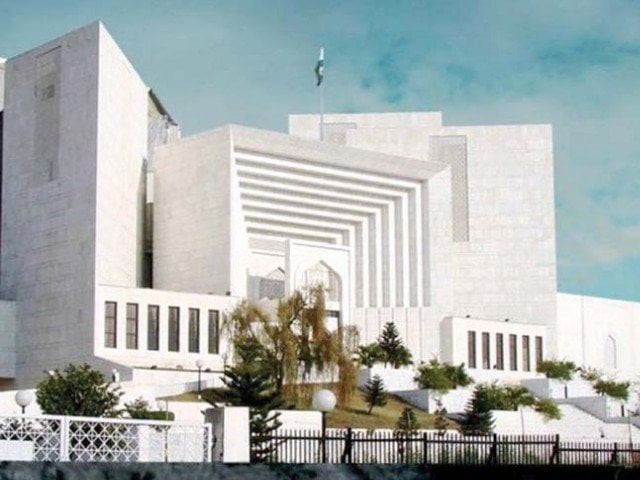
PHOTO: FILE
Likewise, the superior judiciary has been a crucial focus of national politics in 2017. However, due to its adjudication of cases of political nature, the apex court has suffered a lot backlash and faced severe criticism by political parties, particularly from Pakistan’s ruling party Pakistan Muslim League Nawaz (PML-N).
It is unfortunate that instead of resolving political disputes inside Parliament, the parliamentarians approached the Supreme Court against each other, which put the judiciary in an awkward position for the entirety of the year.
Those who are aggrieved by the court’s judgments have also launched propaganda campaigns to establish that the superior judiciary has a nexus with the military establishment. But it is a fact that the judiciary, for the first time, passed verdicts against Sharif family in the outgoing year.
In a recent statement, Chief Justice of Pakistan (CJP) Mian Saqib Nisar completely rejected claims that the judiciary is part of a great game to topple civilian government. However, it will be a challenge for the highest court in the land to prove that no one is above the law.
The superior judiciary’s performance can be judged by its verdicts throughout the year and whether these orders were passed against individuals or institutions without any discrimination. If yes, then it can be said that the judiciary’s performance was its best, most unbiased self.
Judges appointment: Committee formed to amend SJC rules
No doubt, unlike former chief justice Iftikhar Chaudhry's era, there has been no internal pressure on judges in high profile cases in 2017, as they gave their independent opinions on points of law. Yet, there are doubts as to whether the judges’ conflicting opinions in such matters have been helpful in rebuilding the public perception of the judiciary as a powerful institution to instil the people's trust in their legal system.
Generally, whenever the court delivers judgments on matters related to parliamentarians, public perception has been divided. This happened in the past year, wherein a five-judge bench, headed by Justice Asif Saeed Khosa, disqualified PML-N chief Nawaz Sharif in the Panama Papers case after many months of proceedings.
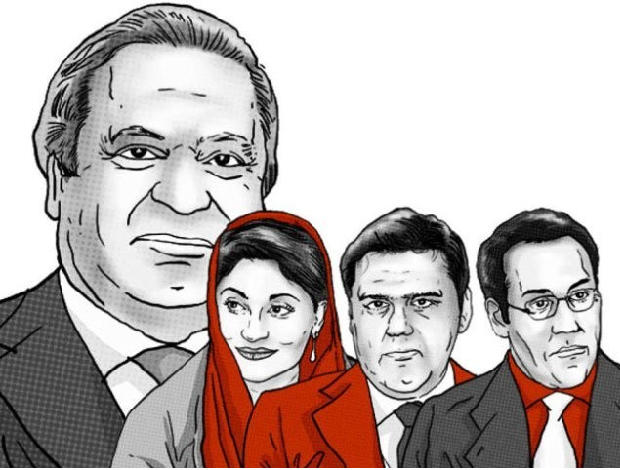
Ironically, just last year, the SC was criticised by Pakistan Tehreek-i-Insaf’s (PTI) followers after former chief justice Anwar Zaheer Jamali adjourned the Panama Papers proceedings two weeks ahead of his retirement.
On January 4, another five-judge bench, headed by Justice Asif Saeed Khosa, resumed proceedings. The Sharif family was armed with a new legal team comprising Makhdoom Ali Khan, Salman Akram Raja and Shahid Hamid.
During the proceedings, political leaders made the court building a political circus every time they came to attend the hearings. PTI chief Imran Khan attended all of the proceedings in the courtroom. Numerous senior PML-N leaders also attended all the hearings. Later in the evening, TV channels conducted speculative discussions on talk shows on the developments of the case.
Lawmakers surprised at judicial picks
In February, a member of the bench, Justice Azmat Saeed Sheikh, suffered a cardiac arrest, but the case hearing was resumed after a couple of weeks. During the hearing, the bench observed that the court aimed to present a historic sentence. In view of such observations, people’s curiosity about the outcome of proceedings piqued.
During the hearing, the bench was visibly divided on several legal points. A similar outcome took place on April 20, when two members of the bench – Justice Asif Saeed Khosa and Justice Gulzar Ahmad – ruled in favour of disqualifying Nawaz Sharif for giving false statements on the acquisition of properties in London. However, the three majority judges – Justice Ejaz Afzal Khan, Justice Azmat Saeed Sheikh, and Justice Ijazul Ahsen – opted to further probe the matter through the JIT, comprising representatives of civil and military agencies.
Up to that point, PML-N followers were jubilant since Nawaz Sharif seemed to have narrowly escaped being disqualified. Sweets were even seen being distributed among party members. PTI, on the other hand, was visibly upset by the decision.
However, the SC’s JIT was up to the task, and even the judges who were members of the implementation bench helped nominate members of the JIT.
On May 6, the SC selected six members the JIT and the Sharif family did not object over the nominations.
2017 – The year of judicial actions
When the JIT launched their investigation by summoning Sharif family members, PML-N leaders started criticising the team. They scrutinised the registrars WhatsApp transcripts to the SECP’s nomination as a member of the task force. When the JIT summoned the ex-PM’s cousin Tariq Shafi to record his statements regarding these allegations, his responses were dissatisfactory.
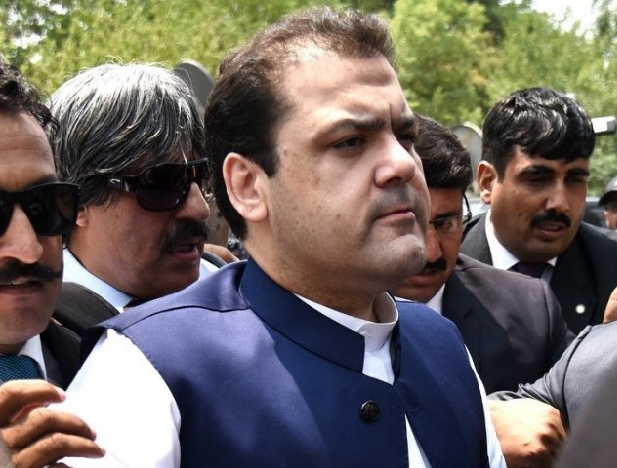
After Shafi’s questionable presentation, the Sharif family then challenged the formation of JIT in the apex court as well as accused the team members of harassing court witnesses. However, the SC dismissed their objections. On July 10, the JIT submitted their final report with new revelations related to the business affairs of the Sharif family. The issue related to the employment of Nawaz Sharif in his son’s UAE based company, Capital FZE, surfaced for the first time in court proceedings. However, legal experts are expressing concern that without the assistance of powerful stakeholders, it was not possible for JIT to bring the necessary documents related to Capital FZE from UAE.
The Sharif family again changed their top attorney, with Khawaja Haris replacing Makhdoom Ali Khan. This would be the third time the Sharifs made changes to their legal team. Eventually, the same larger bench on July 28 disqualified Nawaz Sharif on the charge of concealment of his salary from Capital FZE. However, legal experts raised several objections to the SC’s judgment, and Nawaz Sharif launched a campaign against the judges.
The SC, however, showed restraint by not issuing contempt notices to him. Independent experts are raising questions over the SC's decision to appoint a monitoring judge to supervise the accountability court proceedings against the Sharif family. No parameters have been defined upon how the monitoring judge will supervise the accountability court proceedings.
Another bench, led by the CJP, initiated proceedings over the PML-N leader Hanif Abbasi’s petitions seeking the disqualification of Imran Khan and Jahangir Tareen. The bench conducted around 50 hearings and on December 15, disqualified PTI general secretary, Jahangir Tareen, on charges of the concealment of his UK’s property in the nomination papers.
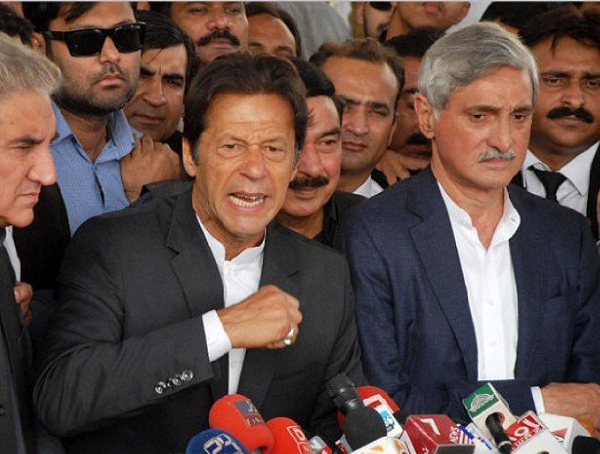
However, the court rejected the petition seeking the disqualification of Imran Khan, and the PML-N members raised concerns over the judgment giving Khan a clean slate.
In view of the SC’s judgments, the institution has maintained that it can directly disqualify parliamentarians under Article 184 (3) of the constitution on the basis of admitted documents. The majority of judges have also declared that Article 62 (1) (f) of the constitution will be applied on the nonfulfillment of legal obligations by any parliamentarian.
However, ambiguity over the period of disqualification by lawmakers, under Article 62(1) (f) of the Constitution, persists despite two major political leaders having been sent packing by the SC under the provision this year. It is expected that the court will take up the interpretation of Article 62(1) (f) of the Constitution to determine whether disqualification of lawmakers under the law is for life, in 2018.
Meanwhile, it was learned that due to the adjudication of high profile matters, pending cases in the apex court have increased. Till November 30, 38,129 cases were pending. The number of cases pending with the Supreme Court has seen a whopping increase of more than 100 per cent during the last eight years.
In 2017, the superior judiciary initiated proceedings of misconduct against five high courts judges. The Supreme Judicial Council (SJC) withdrew proceedings against one Sindh High Court judge. Likewise, one Lahore High Court judge tendered resignation to avoid SJC’s proceedings against him. Two judges have already challenged the council’s procedure in the apex court. They are seeking an open trial. The larger bench is hearing their petitions. The federal government, through the law ministry, is backing their stance regarding their open trial. Legal experts believe that the role of superior bars will be significant to complete the process of self-accountability within the judiciary.
In 2017, the procedure of judges’ appointment has remained questionable by the parliamentary committee and bar councils.
In October, the Parliamentary Committee on Judges Appointments observed that a ‘pick-and-choose method’ has been employed by the Judicial Commission of Pakistan (JCP) while making recommendations for one-year service extensions to additional judges of the Lahore High Court (LHC).
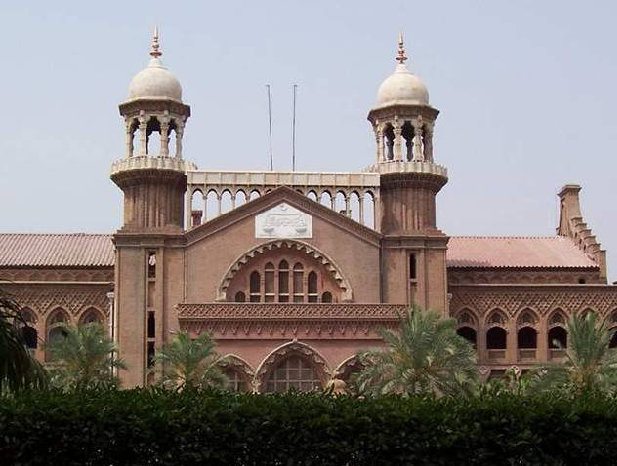
The committee has also expressed surprise that the chief justice of a court, who should be in the best position to recommend extensions or otherwise, first recommended all 14 additional judges for confirmation, but later changed his opinion on seven of the additional judges without recording any reasons.
Despite the pressure of high profile cases, the chief justice has taken a number of suo motu notice in matters of public interest. In January, he took notice over the case of the torture of a minor girl, Tayyaba, by the wife of a sessions judge. The SC also initiated proceedings over the brutal killing of University student Mashal. Experts are appreciating the chief justice’s efforts to take cognisance in the matters of health, education, safe drinking water, and quality of food, which are of much more urgency and significance for average citizens



















COMMENTS
Comments are moderated and generally will be posted if they are on-topic and not abusive.
For more information, please see our Comments FAQ